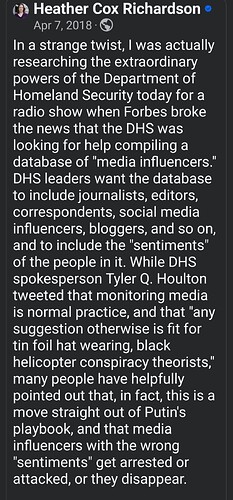April 8, 2025 (Tuesday)
Stocks were up early today as traders put their hopes in Treasury Secretary Scott Bessent’s suggestion that the Trump administration was open to negotiations for lowering Trump’s proposed tariffs. But then U.S. Trade Representative Jamieson Greer said there would not be exemptions from the tariffs for individual products or companies, and President Donald J. Trump said he was going forward with 104% tariffs on China, effective at 12:01 am on Wednesday.
Markets fell again. By the end of the day, the Dow Jones Industrial Average had fallen by another 320 points, or 0.8%, a 52-week low. The S&P 500 fell 1.6% and the Nasdaq Composite fell 2.2%.
Rob Copeland, Maureen Farrell, and Lauren Hirsch of the New York Times reported today that over the weekend, Wall Street billionaires tried desperately and unsuccessfully to change Trump’s mind on tariffs. This week they have begun to go public, calling out what they call the “stupidity” of the new measures. These industry leaders, the reporters write, did not expect Trump to place such high tariffs on so many products and are shocked to find themselves outside the corridors of power where the tariff decisions have been made.
Elon Musk is one of the people Trump is ignoring to side with Peter Navarro, his senior counselor for trade and manufacturing. Navarro went to prison for refusing to answer a congressional subpoena for information regarding Trump’s attempt to overturn the 2020 presidential election. Since Musk poured $290 million into getting Trump elected in 2024 and then burst into the news with his “Department of Government Efficiency,” he has seemed to be in control of the administration. But he has stolen the limelight from Trump, and it appears Trump’s patience with him might be wearing thin.
Elizabeth Dwoskin, Faiz Siddiqui, Pranshu Verma, and Trisha Thadani of the Washington Post reported today that Musk was among those who worked over the weekend to get Trump to end his new tariffs. When Musk failed to change the president’s mind, he took to social media to attack Navarro personally, saying the trade advisor is “truly a moron,” and “dumber than a sack of bricks.”
Asked about the public fight between two of Trump’s advisors—two of the most powerful men in the world—White House press secretary Karoline Leavitt told reporters: “Boys will be boys.”
Business interests hard hit by the proposed tariffs are less inclined to dismiss the men in the administration as madcap kids. They are certainly not letting Musk shift the blame for the economic crisis off Trump and onto Navarro.
The right-wing New Civil Liberties Alliance, which is backed by billionaire Republican donor Charles Koch, has filed a lawsuit claiming that Trump’s tariffs against China are not permitted under the law. It argues that the president’s claim that he can impose sweeping tariffs by using the International Emergency Economic Powers Act (IEEPA) is misguided. It notes that the Constitution gives to Congress, not the president, the power to levy tariffs.
With Trump’s extraordinary tariffs now threatening the global economy, some of those who once cheered on his dictatorial impulses are now recalling the checks and balances they were previously willing to undermine.
Today the editors of the right-wing National Review urged Congress to take back the power it has ceded to Trump, calling it “preposterous that a single person could enjoy this much power over…the global economy.” They decried the ”raw chaos” of the last week that has made it impossible for any business to plan for the future.
“What has happened since last Thursday is hard to fathom,” they write. “Based on an ever-shifting series of rationales, characterized by an embarrassing methodology, and punctuated with an extraordinary arrogance toward the country’s constitutional order, the Trump administration has alienated our global allies, discombobulated our domestic businesses, decimated our capital markets, and increased the likelihood of serious recession.” While this should worry all Americans, they write, Republicans in particular should remember that in less than two years, they “will be judged in large part on whether the president who shares their brand has done a good job.”
“No free man wants to be at the mercy of a king,” they write.
Senator Rand Paul (R-KY) told the Senate yesterday: “I don’t care if the president is a Republican or a Democrat. I don’t want to live under emergency rule. I don’t want to live where my representatives cannot speak for me and have a check and balance on power.”
Adam Cancryn and Myah Ward reported in Politico today that Republican leaders are worried about Trump’s voters abandoning him as prices go up and their savings and jobs disappear. After all, voters elected Trump at least in part because he promised to lower inflation and spur the economy. “It’s a question of what the pain threshold is for the American people and the Republican voters,” one of Trump’s economic advisors told the reporters. “We’ve all lost a lot of money.”
MAGA influencers have begun to talk of the tariffs as a way to make the United States “manly” again, by bringing old-time manufacturing and mining back to the U.S. Writer Rotimi Adeoye today noted MAGA’s glorification of physical labor as a sort of moral purification. Adeoye points out how MAGA performs an identity that fetishizes “rural life, manual labor, and a kind of fake rugged masculinity.” That image—and the tradwife image that complements it—recalls an imagined American past. In reality, the 1960s manufacturing economy MAGA influencers appear to be celebrating depended on high rates of unionization and taxation, and on government investing heavily in infrastructure, including healthcare and education.
Adeoye notes that Trump is marketing the image of a world in which ordinary workers had a shot at prosperity, but his tariffs will not bring that world back.
In a larger sense, Trump’s undermining of the global economy reflects forty years of Republican emphasis on the myth that a true American man is an individual who operates outside the community, needs nothing from the government, and asserts his will by dominating others.
Associated with the American cowboy, that myth became central to the culture of Reagan’s America as a way for Republican politicians to convince voters to support the destruction of federal government programs that benefited them. Over time, those embracing that individualist vision came to dismiss all government policies that promoted social cooperation, whether at home or abroad, replacing that cooperation with the idea that strong men should dominate society, ordering it as they thought best.
The Trump administration has taken that idea to an extreme, gutting the U.S. government and centering power in the president, while also pulling the U.S. out of the web of international organizations that have stabilized the globe since World War II. In place of that cooperation, the Trump administration wants to invest $1 trillion in the military. It is not just exercising dominance over others, it is reveling in that dominance, especially over the migrants it has sent to prison in El Salvador. It has shown films of them being transported in chains and has displayed caged prisoners behind Homeland Security Secretary Kristi Noem, who was wearing a $50,000 gold Rolex watch.
Now Trump is demonstrating his power over the global economy, rejecting the conviction of past American leaders that true power and prosperity rest in cooperation. Trump has always seen power as a zero-sum game in which for one party to win, others must lose, so he appears incapable of understanding that global trade does not mean the U.S. is getting “ripped off.” Now he appears unconcerned that other countries could work together against the U.S. and seems to assume they will have to do what he says.
We’ll see.
For his part, Trump appears to be enjoying that he is now undoubtedly the center of attention. Asked to make “dinner remarks” at the National Republican Congressional Committee tonight, he spoke for close to two hours. Discussing the tariffs, he delivered a story with the “sir” marker that indicates the story is false: “These countries are calling us up. Kissing my ass,” he told the audience. “They are dying to make a deal. “Please, please, sir, make a deal. I’ll do anything. I’ll do anything, sir. And then I’ll see some rebel Republican, you know, some guy that wants to grandstand, saying: ‘I think that Congress should take over negotiations.’ Let me tell you: you don’t negotiate like I negotiate.”
Trump also told the audience that "I really think we’re helped a lot by the tariff situation that’s going on, which is a good situation, not a bad. It’s great. It’s going to be legendary, you watch. Legendary in a positive way, I have to say. It’s gonna be legendary.”




